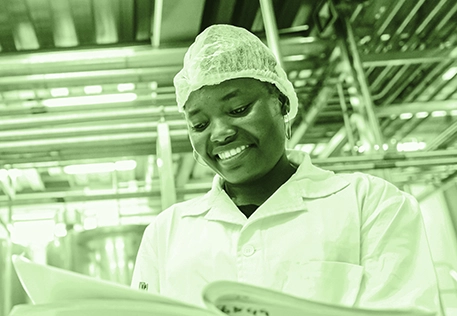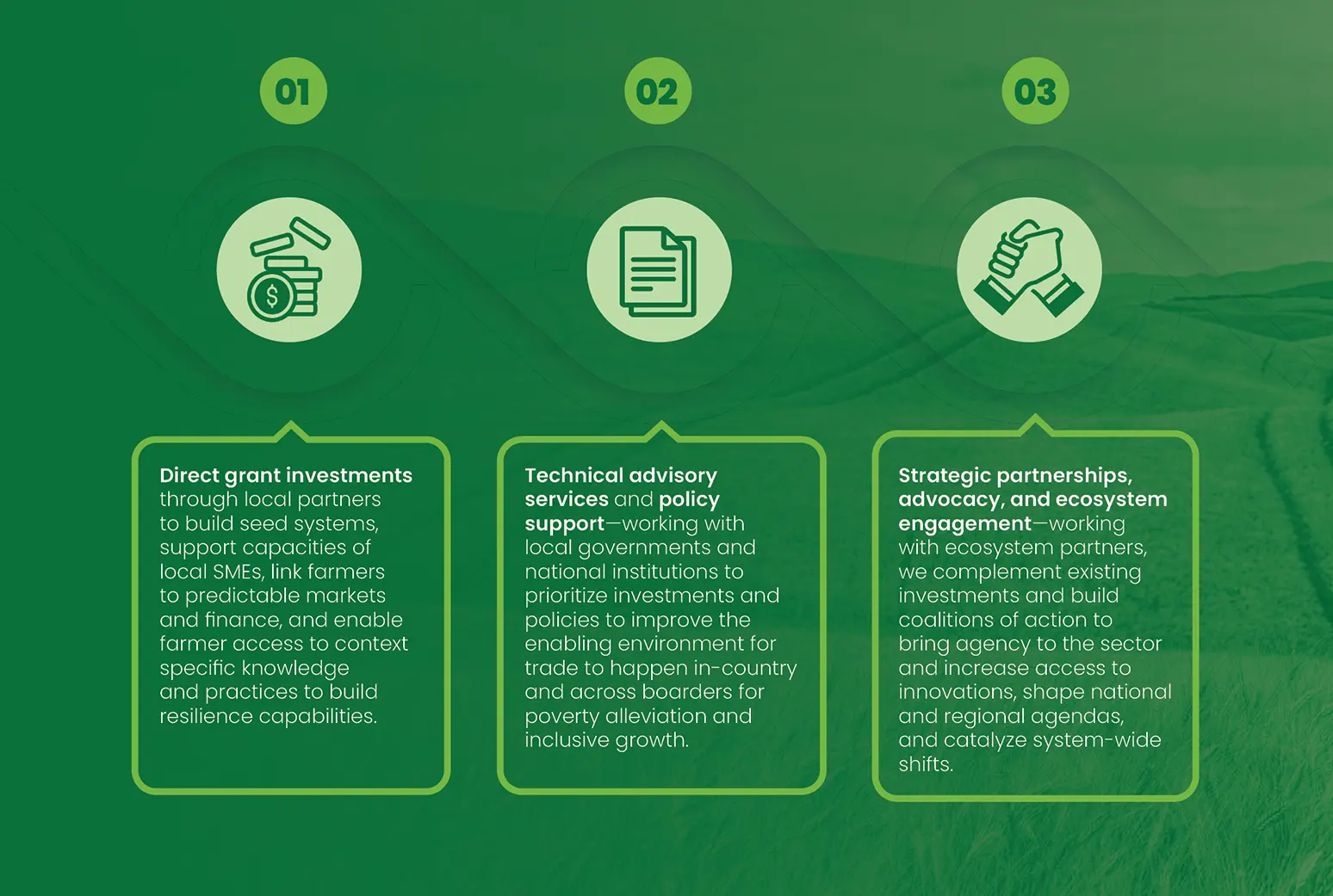COUNTRY-LED, PEOPLE-POWERED
How We Drive Change
- Home
- How We Drive Change

How We Drive Change
AGRA’s work is anchored in country-led transformation. Across 12 priority countries—supported by two regional hubs and aligned with a continental vision—we partner with national and local governments, regional bodies, technical institutions, civil society, and local private and non-governmental institutions to identify constraints that, if alleviated, would enable smallholder farmers to access affordable inputs and competitive markets. Each country has a clearly articulated change narrative that sets out a focused vision of success by 2028. These narratives guide how AGRA prioritizes investments and identifies partners to collaborate with in its efforts to build resilient food systems that can enable smallholder farmers to absorb any shock and empower households to bounce back stronger through enhancing market and sector competitiveness.
Our strategy is country-led and locally grounded but also shaped by broader regional and continental agendas, including CAADP, the Kampala Declaration, and the African Union’s nutrition, climate, and trade priorities. From expanding access to improved seed in Ethiopia and Ghana, to strengthening national investment planning in Nigeria and Mozambique, our work supports local actors to translate national priorities into local implementation.
Our working models are powered by four areas of technical expertise:
- Seed Systems and CESSA
- Sustainable Farming
- Inclusive Markets and Trade
- Policy and State Capability
Climate action, youth and gender inclusion, and nutrition are embedded across all interventions to ensure holistic, lasting impact. This approach recognizes that women, youth, and other underrepresented groups are not just beneficiaries, but key drivers of agricultural innovation, productivity, and resilience—bringing diverse skills, perspectives, and solutions that strengthen agribusiness and food systems overall.
AGRA’s investments in 2024 were complementary yet catalytic to governments’ sector plans, farmer organizations’ priorities and constraints, research institutions’ needs, private sector opportunities, and development partners’ focus areas. We believe that it is through such collective intents that we can accelerate agri-food systems transformation and build inclusive, economic growth.
We deliver impact through three complementary models:

